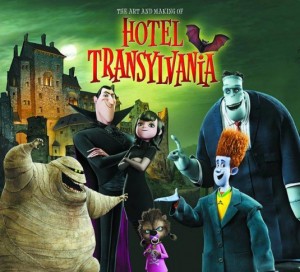Won’t Back Down
Posted on September 27, 2012 at 6:00 pm
What should have been a rousing, feel-good, “inspired by a true story” film about a mother and a teacher who take on the teacher’s union and the school board to turn around a failing elementary school benefits from strong performances but suffers from a palpably skewed point of view. Maggie Gyllenhaal plays Jamie, the devoted single mother of a daughter with dyslexia who attends the John Adams elementary school in a poor Pennsylvania community. Viola Davis plays Nona, a frustrated teacher whose own son has developmental disabilities that add to the strain in her marriage.
When Jamie tries to see the school superintendent to complain about the principal’s unwillingness to help her, she can’t get in. But a sympathetic receptionist explains that there is a parental trigger law that at least in theory can help. If a school has consistently failed, parents and teachers can petition to take it over. In reality, Jamie is told, those petitions never succeed. The school board uses delays and technicalities to wear down the petitioners. But, as Jamie explains, those mothers who lift trucks to save their babies have nothing on her.
The other teachers are angry and scared when Nona joins Jamie. If the petition is successful, the teachers will no longer be part of the union. They will lose their tenure and possibly their jobs. The petition cannot be successful without the signatures of at least half of the teachers. Lifting the truck begins to seem easy by comparison.
Gyllenhaal conveys passion well but her character is too good to be true, never wavering or even slowing down despite having to hold down two jobs to support her daughter and always having to exemplify all that is committed and pure of heart while also being all kinds of spontaneous and free-spirited, knowing everything about Penguins hockey, being infinitely patient with her daughter, and rocking the skinny jeans. Davis brings great depth and warmth to Nona, but she is stuck with the “black Stepford wife” role and even Davis, one of the finest actors in film history, cannot make Nona’s big powerhouse revelation scene work.
Every parent and anyone who has ever been to school cannot help but be drawn into this underdog story about people who want to make things better for their children and are willing to take on the bad guys. But oh, this movie really overdoes it with the bad guys. There are some mentions of the important contributions made by unions, especially by Michael (the always-outstanding Oscar Isaac) as a Teach for America veteran who is one of the school’s best teachers. But those references are all to the distant past and the praise sounds as insincere Antony’s praise for Brutus. Meanwhile, the union officials are portrayed as venal and corrupt, more concerned with their own power than with the welfare of the children and willing to restort to bribes, threats, manipulation, and character assassination. The bias is evident when of them all but twirls a villain-esque mustache as he quotes a statement the late Albert Shanker, former president of the teacher’s union, never actually made about how children do not pay union dues, so his allegiance is to the teachers who do. They make “It’s a Wonderful Life’s” Mr. Potter seem like Santa Claus. There are bad teachers in schools but it is way over the top when the opening scene shows Jamie’s daughter struggling to sound out the word “story” as her teacher checks her email and shops online and some of the other kids play computer games and make fun of her.
The film has been widely criticized because it is funded by those who have an economic interest in taking over schools, for-profit companies that want to get the school contracts, and those points are valid. Those points are valid. But so is the point that seven out of ten kids at this school cannot read by the time they leave. It is fun to see Gyllenhaal and Davis dance together in the bar where Jamie works as a bartender but it would have been a lot more meaningful to have a forthright conversation about how to protect and retain good teachers and help students who do not have enough support at home. All we ever hear about from the phone book-sized petition Jamie and Nona present to the board is a number with digits mistakenly reversed that may be grounds for rejection. We never hear about the ideas for change that would be the reasons for its approval. We can all agree that schools can do better and that abuses occur when there is too little protection for teachers and administrators and when there is too much. The tough part is coming up with a way to do something about it. Nona and Jamie talk about the importance of high expectations. I had higher expectations for this film than it was willing to meet.
Parents should know that this film includes drinking, scenes in bar, mild language (“screw”), references to drunk driving and irresponsible behavior, tense confrontations, and some kissing.
Family discussion: Read about the controversy over the “parent trigger” laws advocated in the film – what are the advantages and disadvantages of outsourcing school administration? What are parents in your community doing to help teachers and students?
If you like this, try: the documentaries “Waiting for Superman” and “Small Wonders”

